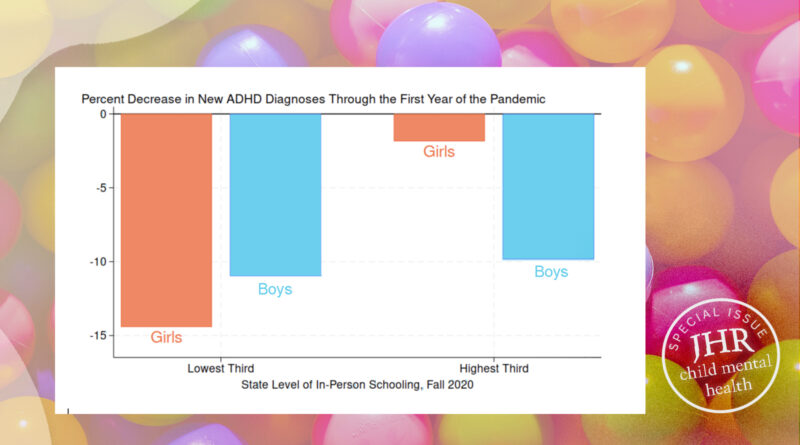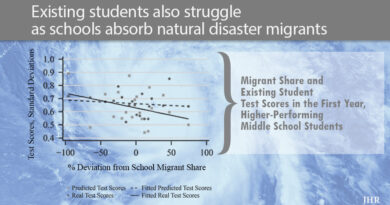The COVID-19 Pandemic Reduced Diagnoses for ADHD among Children, but the Return of In-Person Schooling Lessened the Impact on Girls
The COVID-19 pandemic created major disruptions in the lives of children. These disruptions in schools, home environments, and the healthcare system may have impacted the way existing mental health conditions were identified. Seth Freedman, Kelli Marquardt, Dario Salcedo, Kosali Simon, and Coady Wing studied the impact of the pandemic and the potential role of school closures on the diagnosis of Attention Deficit Hyperactivity Disorder (ADHD), the most commonly diagnosed child mental health condition in the US.
The researchers used a database of health insurance claims that covers millions of children nationwide and a separate database of electronic health records covering most children in the state of Indiana. To understand the effect of the pandemic on the likelihood children were diagnosed with ADHD, they compared children during the pandemic to same-grade children the school year before the pandemic.
Overall, they found that among children not previously diagnosed with ADHD, new diagnoses were about 10% lower than they would have been if the pandemic had not occurred. The likelihood of being newly diagnosed fell immediately during the spring of 2020 and remained at this new lower level through at least the first year of the pandemic.
Since ADHD is often first recognized by teachers in the school setting, the researchers then looked at how these patterns differed in states that had high or low levels of in-person schooling when the new school year began in the fall of 2020. They found that the level of in-person schooling did not alter the results for boys. But girls who lived in states with high levels of in-person schooling saw a rebound in new diagnoses, so that the overall decrease for girls in these states was small. This is an important finding, since girls with ADHD are often underdiagnosed, so school re-openings may have been particularly helpful in improving their access to mental health care during the pandemic disruptions.
This research suggests that when children’s lives are disrupted by events like the COVID-19 pandemic, policymakers, parents, teachers, and healthcare providers should pay particular attention to children’s mental health care needs that may go unnoticed.
Read the article in the Journal of Human Resources: “Societal Disruptions and Childhood ADHD Diagnosis During the COVID-19 Pandemic” by Seth Freedman, Kelli Marquardt, Dario Salcedo, Kosali Simon and Coady Wing.
***
Seth Freedman is an Associate Professor in the O’Neill School of Public and Environmental Affairs at Indiana University, Bloomington (@seth_freedman). Kelli Marquardt is an Economist at the Federal Reserve Bank of Chicago (@KelliMarquardt). Dario Salcedo is a PhD Student at the O’Neill School of Public and Environmental Affairs at Indiana University, Bloomington (@dariojsalcedo). Kosali Simon is a Distinguished Professor in the O’Neill School of Public and Environmental Affairs at Indiana University, Bloomington and a Research Associate at the National Bureau of Economic Research (@KosaliSimon). Coady Wing is an Associate Professor in the O’Neill School of Public and Environmental Affairs at Indiana University, Bloomington (@coady_wing).




